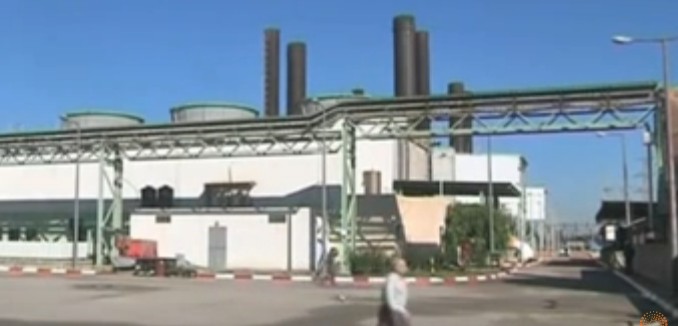The same heat wave that is keeping temperatures high across Israel is also scorching the Gaza Strip, where residents who are struggling with the bleak consequences of the electricity crisis, the result of infighting between Hamas and the Palestinian Authority, blame Hamas for their predicament, The Times of Israel reported Tuesday.
The electricity shortage has turned basic goods and services into luxuries. With temperatures soaring to 37°C (98°F), strategies for cooling off, including showers, swimming, air conditioning, and electric fans, are all but unavailable. Even fresh water is in short supply.
In a series of interviews with The Times of Israel, residents described the dire situation in the Strip, on the condition of strict anonymity for fear of retaliation from authorities in Gaza.
As for who is responsible for the crisis, “most of the anger is directed at Hamas,” explained Sami, a medical intern. He said the electricity crisis is the hot topic in Gaza and “people repeatedly hating Hamas for this particular reason.”
“Sometimes I go around flipping on different sides of my bed for an hour before I can fall asleep. It’s humiliating,” he added.
Depending on which neighborhood he lives in, the average Gazan has access to either four to six or two to three hours of electricity a day, which makes a daily routine impossible. “When the power comes, for two to three hours, you run like a madman to manage to recharge everything, pump water, shower, sleep, work, get online, cool down and breathe, all in two hours,” said Ali, a 30-year-old journalist.
The residents of Gaza have suffered a dramatic loss in living standards ever since the terrorist group Hamas took control of Gaza in 2007 in a violent coup against the Palestinian Authority. The current crisis began when Gaza’s sole power plant shut down in April for lack of funds. Hamas could, if it wanted to, pay for the lack of electricity and ease the suffering immediately, but instead uses the humanitarian crisis as a card in a cynical political power game.
Avi Issacharoff, Palestinian affairs correspondent for The Times of Israel, observed last month, “Those who took control of Gaza in a military coup and since then invested more than $1 billion in their military infrastructure, could have easily directed their resources to resolve Gaza’s problems. But what is the value of another few hours of electricity for the people of Gaza, compared to another few tunnels or rockets?”
Veteran Palestinian affairs correspondent Khaled Abu Toameh made a similar observation about Hamas’ priorities in February 2016. The expense and effort that Hamas puts into building attack tunnels while Gaza is mired in poverty shows that “the last thing Hamas cares about is the welfare of the Palestinians in the Gaza Strip,” he wrote.
[Photo: Reuters / YouTube ]




